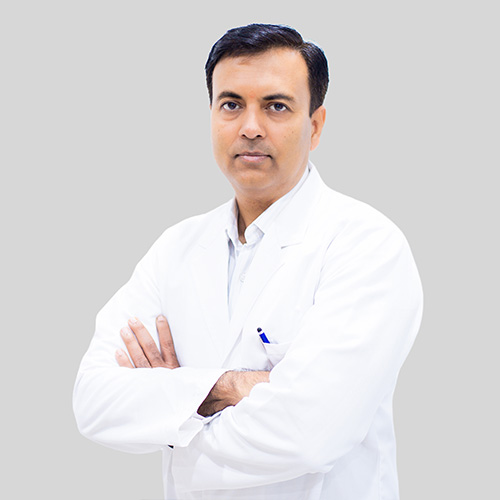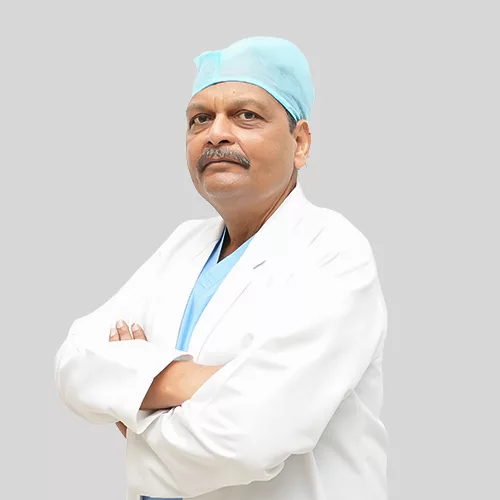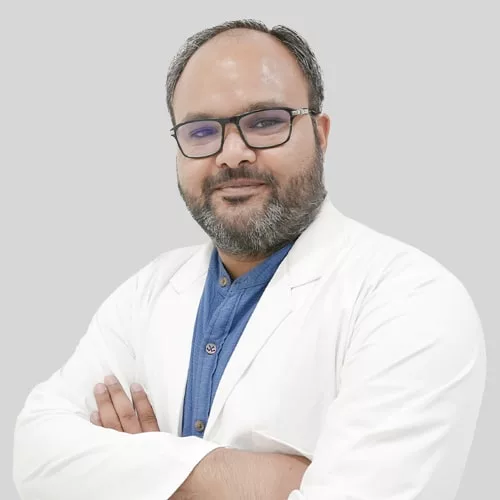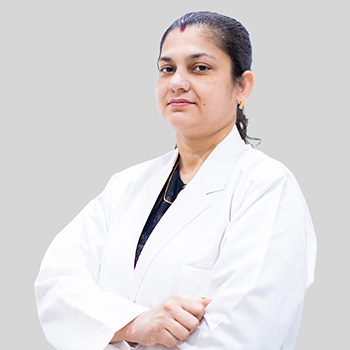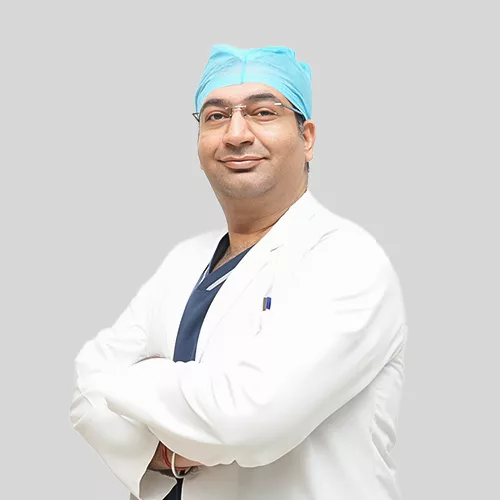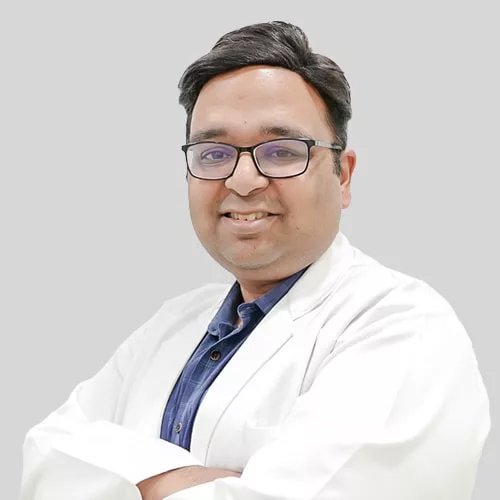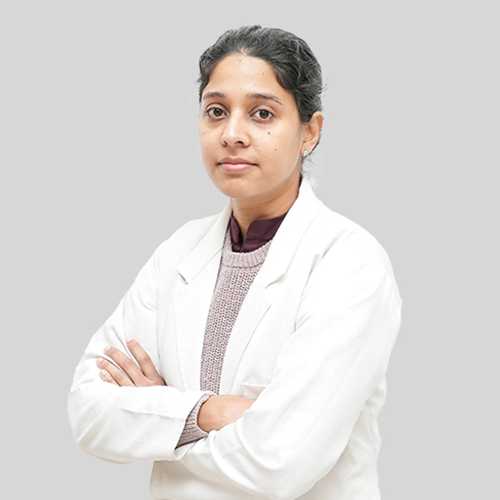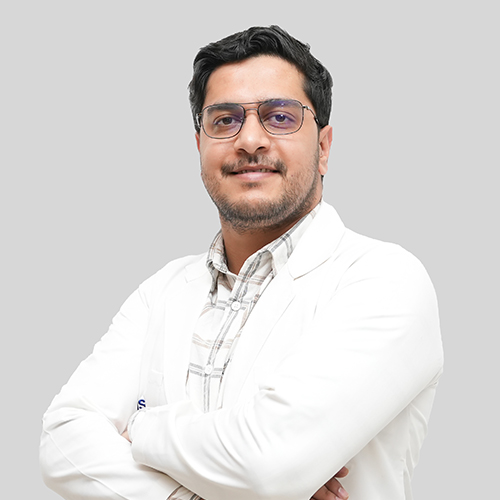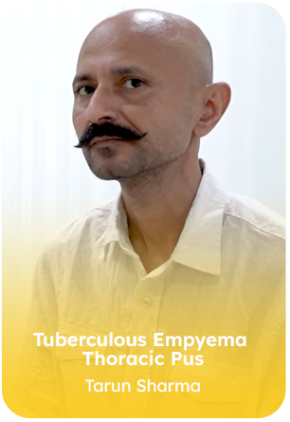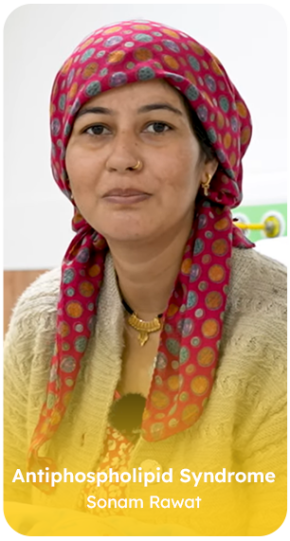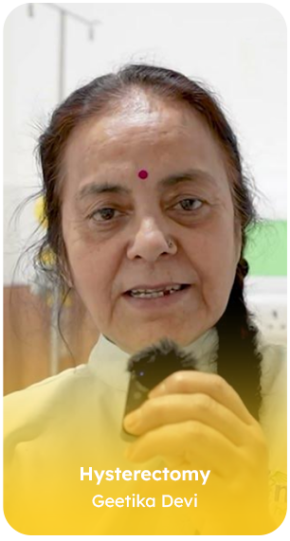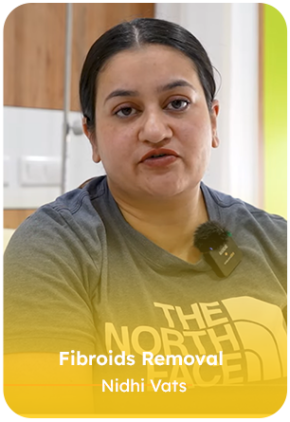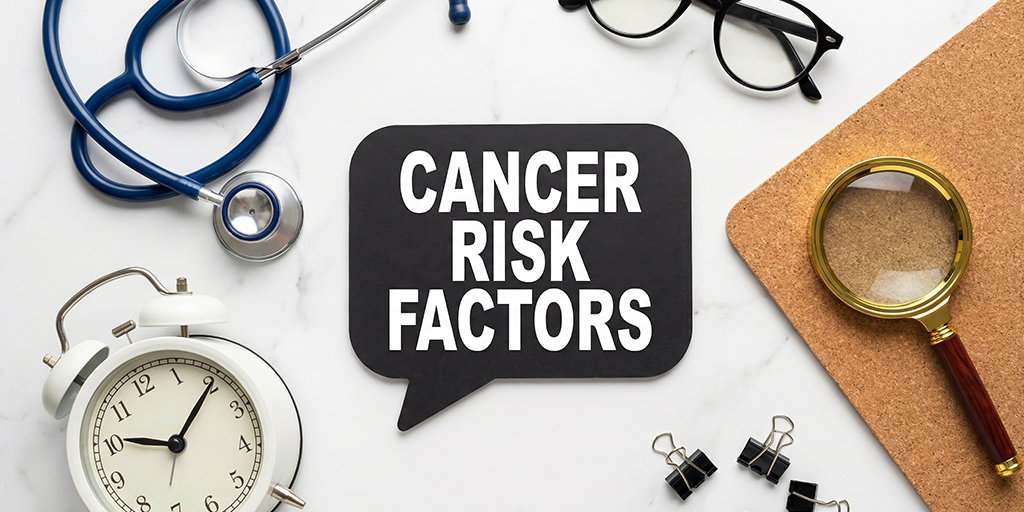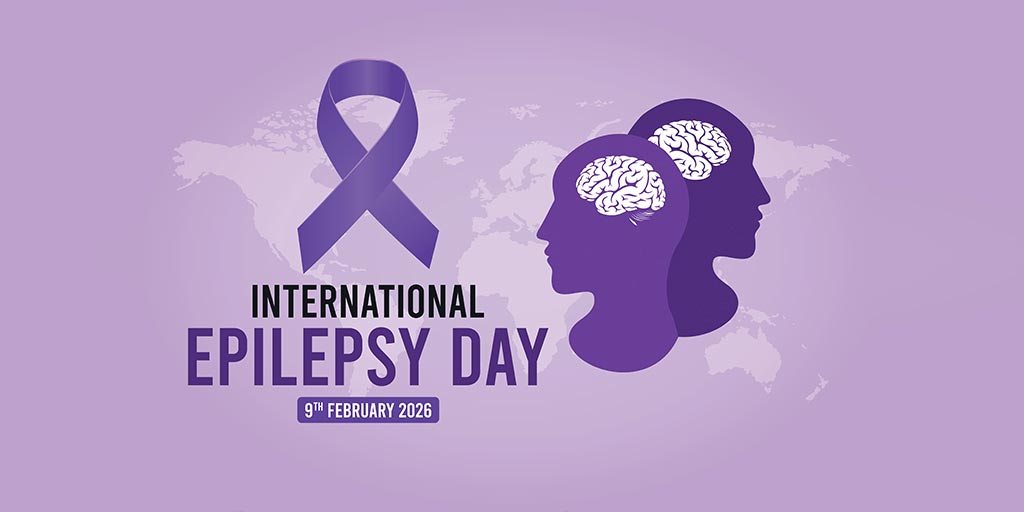Life’s journey can sometimes be unexpectedly disrupted by surgical needs, requiring expert hands and a comprehensive approach. At Graphic Era Hospital, Dehradun, our team of dedicated general surgeons stands ready to provide exceptional care across a wide spectrum of surgical conditions. From routine procedures to complex interventions, we are committed to diagnosing and managing your surgical needs with precision and compassion. With advanced surgical techniques, personalised treatment strategies, and a focus on patient well-being, we strive to ensure the best possible outcomes and a smooth path to recovery.
Doctors Available
What Does a General Surgeon Do?
A general surgeon is a medical specialist trained to diagnose, treat, and manage a wide variety of conditions that require surgical and non surgical management. These experts are skilled in performing procedures across multiple areas of the body, including the abdomen, digestive tract, skin, soft tissues, breast and endocrine system. At Graphic Era Hospital, Dehradun, our highly experienced general surgeons provide patient-centred surgical care using advanced techniques and the latest technology. Their focus is on delivering safe, effective, and personalised treatment to achieve the best possible outcomes. Key responsibilities of a general surgeon include:
- Diagnosis: Evaluating patients to determine if surgery is the appropriate treatment option. This involves taking detailed medical history, performing physical examination, and ordering and interpreting diagnostic tests.
- Pre-operative Care: Preparing patients for surgery, which includes explaining the procedure, discussing risks and benefits, and optimizing the patient's health before the operation.
- Performing Surgery: Executing a wide variety of surgical procedures using both traditional open techniques and minimally invasive techniques (like laparoscopy and endoscopy).
- Post-operative Care: Managing patients after surgery, monitoring their recovery, managing pain, and addressing any complications that may arise.
- Follow-up Care: Seeing patients in the clinic after surgery to ensure proper healing and address any ongoing issues.
- Emergency Care: Providing surgical intervention for emergency conditions such as appendicitis, bowel obstructions, trauma, and acute abdominal pain.
- Collaboration: Working as part of a multidisciplinary team, including other specialists, nurses, and allied health professionals, to provide comprehensive patient care.
Common Body Parts General Surgeons Commonly Operate On
While the name "general" suggests a broad scope, general surgeons often focus on the following areas:
- Abdomen and its contents: This includes organs like the stomach, intestines (small and large), colon, rectum, liver, gallbladder, pancreas, spleen, and appendix.
- Breast: Diagnosis and surgical treatment of breast cancer and other breast conditions.
- Skin and soft tissues: Removal of skin lesions, treatment of infections and abscesses, and management of soft tissue tumors.
- Endocrine system: Surgery on glands like the thyroid, parathyroid, and adrenal glands.
- Vascular system (excluding the heart and intracranial vessels): Treatment of certain conditions affecting veins, for example varicose veins.
- Head and neck: Some general surgeons perform surgery on the head and neck, particularly for issues involving the skin, salivary glands, thyroid, and parathyroid.
Key Procedures Our General Surgeons Perform
Our general surgery team at Graphic Era Hospital, Dehradun, performs a wide range of essential surgical procedures that include, but are not limited to the following
- Appendectomy: Removal of the appendix.
- Cholecystectomy: Removal of the gallbladder.
- Hernia repair: Surgical correction of various types of hernias (inguinal, ventral, etc.).
- Bowel resection: Removal of part of the small or large intestine.
- Colectomy: Removal of all or part of the colon.
- Mastectomy and lumpectomy: Surgical procedures for breast cancer.
- Thyroidectomy and parathyroidectomy: Removal of the thyroid or parathyroid glands.
- Gallbladder surgery: Addressing gallstones and other gallbladder issues.
- Exploratory laparotomy or laparoscopy: Surgical exploration of the abdomen to diagnose and treat various conditions.
- Skin lesion removal: Excision of moles, cysts, and skin cancers.
Important Note: While general surgeons have a broad base of knowledge, some may develop special interests or focus their practice on specific areas within general surgery like GI, Bariatric, Surgical Oncology, Endocrine etc. For complex conditions in specific areas (like the heart, brain, or bones), patients are typically referred to the concerned specialities.
Conditions Our Team Surgically Treat
Our expert general surgeons specialise in diagnosing, treating, and managing a wide variety of surgical conditions across multiple areas of the body. From routine procedures to complex surgeries, we offer advanced surgical care supported by cutting-edge technology and personalised treatment plans to promote faster recovery and better outcomes.
- Hernias: Bulging of an organ or tissue through an abnormal opening, commonly in the abdomen or groin, requiring surgical repair to prevent complications.
- Gallbladder Diseases: Conditions like gallstones or cholecystitis causing pain, infection, or digestive problems, often treated through gallbladder removal (cholecystectomy).
- Appendicitis: Inflammation of the appendix, presenting with severe abdominal pain, usually requiring urgent surgical removal to prevent rupture.
- Gastrointestinal Disorders: Surgical management of issues such as bowel obstruction, intestinal perforations, or diverticulitis, ensuring proper digestive system function.
- Thyroid and Parathyroid Disorders: Surgical treatment of enlarged thyroid glands, nodules, or hormone-secreting tumours affecting metabolic balance.
- Breast Lumps and Tumours: Removal of benign or malignant lumps through procedures like lumpectomy or mastectomy, often performed in collaboration with oncologists.
- Soft Tissue Infections and Abscesses: Surgical drainage and treatment of deep infections or abscesses to prevent further spread and promote healing.
- Trauma and Emergency Surgeries: Immediate surgical care for injuries such as internal bleeding, abdominal trauma, or fractures requiring urgent intervention.
- Skin and Subcutaneous Lesions: Excision of cysts, lipomas, or skin cancers, ensuring complete removal with minimal scarring.
- Varicose Veins: Surgical or minimally invasive procedures to treat enlarged, twisted veins that cause pain, swelling, and circulation issues.
- Anal and Rectal Disorders: Surgical management of conditions like haemorrhoids, fistulas, and fissures to alleviate discomfort and restore normal function.
At Graphic Era Hospital, Dehradun, our general surgery team is dedicated to delivering comprehensive surgical care with precision, compassion, and a commitment to your long-term health.
Why Choose Graphic Era Hospital Dehradun for General Surgery
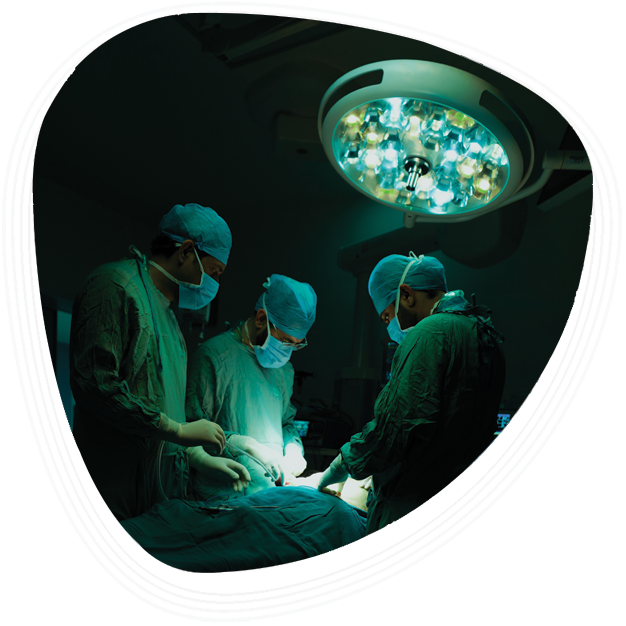
When to Consult a General Surgeon?
Surgical issues can sometimes start with mild symptoms, but ignoring them may lead to serious complications that require expert surgical intervention. A general surgeon is trained to diagnose and treat a wide range of conditions that affect various parts of the body. You should consider consulting a general surgeon near you if you experience:
- Persistent Abdominal Pain: Ongoing or severe pain in the abdomen that may suggest conditions like appendicitis, hernias, or gallbladder problems.
- Lumps or Swellings: New or enlarging lumps under the skin, in the groin, or near the abdomen that could indicate hernias, cysts, or tumours.
- Unexplained Digestive Issues: Chronic bloating, nausea, vomiting or blood in vomit, or difficulty passing stools that may signal an underlying gastrointestinal condition.
- Unexpected weight loss or loss of appetite
- Gallbladder Symptoms: Frequent episodes of upper right abdominal pain, especially after meals, possibly due to gallstones or gallbladder inflammation.
- Trauma or Injury: Significant injuries to the abdomen, chest, or extremities from accidents or falls that may require surgical evaluation and care.
- Skin Lesions or Infections: Non-healing wounds, deep abscesses, or suspicious skin growths that need surgical removal or drainage.
- Sudden Changes in Bowel Habits: New symptoms like blood in stools, severe constipation, or diarrhoea requiring further investigation.
- Breast Lumps or Changes: Detection of lumps, thickening, or changes in breast shape or skin that may require surgical biopsy or excision.
- Anal or Rectal Discomfort: Persistent pain, bleeding, or swelling around the anus which may be due to haemorrhoids, fissures, or fistulas needing surgical treatment.
- Referral from Primary Doctor: When your general physician recommends specialist surgical consultation based on imaging, blood tests, or persistent symptoms.
If you or a loved one are experiencing symptoms that may require surgical evaluation, timely consultation with a general surgeon at Graphic Era Hospital, Dehradun, can significantly improve outcomes, ensure safe treatment, and support a faster, smoother recovery.
General Surgeons Conditions Treated at Graphic Era Hospital
Other Specialities
Patient Stories
Blog
Frequently Asked Questions (FAQs)
How do I know if I need to consult a surgeon or a physician first?
If you are experiencing symptoms that persist despite medication or if your physician recommends a surgical evaluation, it’s advisable to consult a general surgeon for further assessment.
Do I need a referral to book an appointment with a general surgeon at Graphic Era Hospital?
No referral is necessary. You can directly schedule an appointment with our general surgery department for an evaluation.
What should I bring to my first consultation with the general surgeon?
Please bring your previous medical records, a list of current medications, relevant diagnostic reports (like blood tests, imaging), and your insurance details if applicable.
How long does a typical consultation with a general surgeon take?
A first consultation usually lasts between 20 to 40 minutes, depending on the complexity of your condition.
What is the recovery time for most general surgical procedures?
Recovery times vary depending on the type of surgery. Minimally invasive procedures typically allow you to return to normal activities within a few days to a few weeks, whereas traditional surgeries may require longer recovery periods.
Will I need surgery immediately after my consultation?
Not necessarily. Our surgeons explore all possible non-surgical treatments first. Surgery is recommended only when it is truly necessary for your health.
Are all surgeries at Graphic Era Hospital performed using minimally invasive techniques?
Whenever possible, our surgeons prefer minimally invasive (laparoscopic) techniques. However, some cases may still require traditional open surgery based on clinical necessity.
How soon can I return to work after surgery?
It depends on the type of surgery and your individual recovery. Some patients can resume work within a week, while others may need a longer rest period, particularly after major procedures.
What kind of anaesthesia is used for general surgeries?
Depending on the procedure, general, regional, or local anaesthesia may be used. Your surgeon and anaesthesiologist will discuss the best option for you during pre-operative planning.
Is there someone I can contact at the hospital if I have questions after surgery?
Yes. After your surgery, you will be given direct contact information for the surgical care team or post-operative support staff who you can contact in case you need assistance or advice.
How are post-surgery infections prevented at Graphic Era Hospital?
Our hospital follows strict infection control protocols, including sterile surgical environments, advanced wound care, and post-operative monitoring to minimise infection risks.
Can I get a second opinion from another surgeon within the hospital?
Yes, patients are encouraged to seek second opinions if they wish. Our team works collaboratively to ensure you have full confidence in your treatment plan.
What payment options are available for surgery at Graphic Era Hospital?
We offer multiple payment options, including cashless insurance tie-ups, credit/debit card payments, and structured financial counselling for patients requiring support.
How early should I arrive at the hospital on the day of surgery?
Patients are usually advised to arrive at least 2–3 hours before the scheduled surgery time for pre-operative preparations.
Will I need someone to accompany me after surgery?
Yes, it is highly recommended that a family member or caregiver accompanies you, especially if you undergo outpatient surgery or are discharged the same day.
Does Graphic Era Hospital offer day-care (same-day discharge) surgeries?
Yes, many minimally invasive procedures such as gallbladder surgeries, and skin lesion removals are available as day-care surgeries, allowing patients to return home the same day.
What lifestyle changes should I expect after surgery?
Depending on the type of surgery, you may be advised to modify your diet, activity levels, wound care routines, and medication schedules to support healing.
How will I manage pain after surgery?
Our surgical team provides detailed pain management plans that may include medications, physiotherapy, and home care instructions to ensure a comfortable recovery.
Are follow-up visits mandatory after surgery?
Yes, scheduled follow-up visits are essential to monitor healing, remove sutures if needed, adjust medications, and ensure no complications arise.
Can Graphic Era Hospital assist with medical certificates or paperwork needed after surgery (for work or insurance claims)?
Yes, our administrative team can help you with any required documentation, including medical certificates, surgical summaries, and insurance paperwork.
